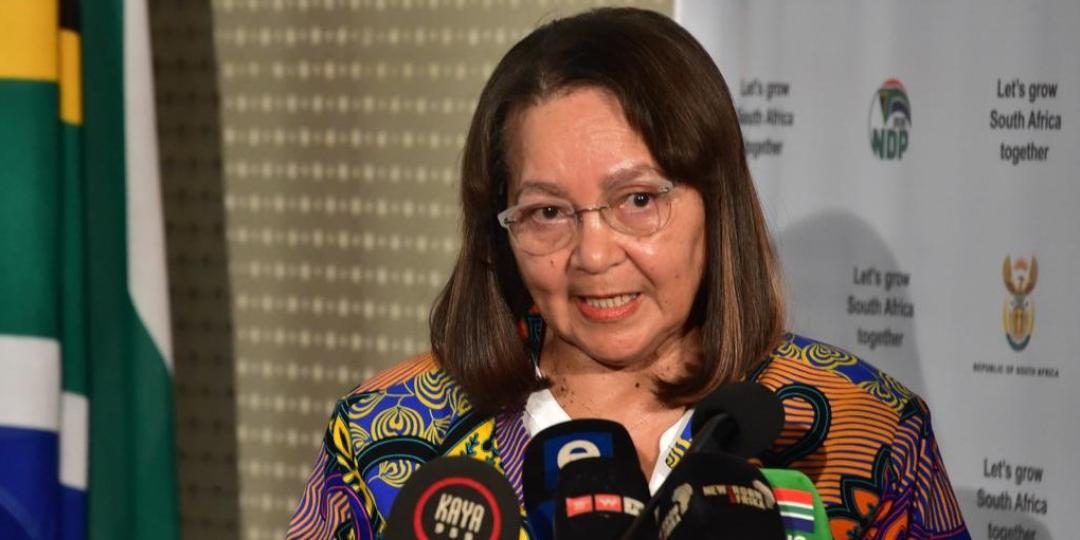South Africa’s Department of Tourism will focus on six key priority areas in the 2023/24 financial year, as it goes about spending a proposed R2.5 billion budget (€121 million) for the year.
Minister Patricia De Lille highlighted the priority areas during her presentation of the Tourism Budget Vote in parliament on Wednesday, May 24, during which members of parliament debated the proposed budget for the Department.
Of the R2.5 billion overall budget, more than 50% (R1.34bn (€65 m)) will be allocated to South African Tourism. Other main allocations will include R347m (€16.8m) for compensation of employees; R303m (€14.6m) on the Extended Public Works Programme; and R225m (€10.9m) on incentives programmes such as the Green Tourism Incentive Programme, the Market Access Support Programme and the Tourism Grading Support Programme.
The six priority areas outlined by De Lille form the basis of the performance agreement given to her by President Cyril Ramaphosa on April 6.
Mainstream tourism into economic recovery
The priorities include converting the current Tourism Sector Recovery Plan into a Master Plan for Tourism, with ‘clear interventions to increase the volume and value of domestic and international tourism’, according to De Lille, who said would be finalised within the next few months.
“The implementation of the Master Plan will focus on enhancing destination marketing and working with all stakeholders including major global tech companies, the tourism business council, aviation sector, major hotel groups and township tourism associations, amongst others.”
Improve e-visa turnaround time
Addressing the frustrations regarding slow e-visa turnaround times, De Lille said that she was working closely with Minister of Home Affairs Aaron Motsoaledi.
“We agreed a lot needs to be done to improve the ease of applying for e-visas and turnaround time for applications,” she said.
Initially launched for 14 countries, the e-visa programme will soon be expanded to another 20 countries.
Improve the turnaround time for tour operator licenses
Earlier this month, De Lille met with Minister of Transport Lydia Chikunga to discuss the backlog of tourist transport operating licenses at the National Public Transport Regulator (NPTR). The backlog at the NPTR currently stands at 480 applications.
“We both agreed to eradicate barriers and backlogs,” said De Lille.
Implementation of the Tourism Equity Fund
In February, the Constitutional Court upheld a decision which ruled that the application of Broad-Based Black Economic Empowerment (B-BBEE) criteria in determining the beneficiaries of a Tourism Equity Fund was unlawful.
However, De Lille said that she had consulted with the State Attorney and Senior Counsel, reaching an ‘out-of-court settlement’ which was finalised on April 26, to bring the fund back into play.
“We are now finalising the concept and criteria for applications to the Tourism Equity Fund within the existing B-BBEE legislation and the Tourism B-BBEE Codes. This will unblock R1.42 billion in funding to facilitate accelerated sector transformation,” she stated.
Tourism infrastructure development
Infrastructure development and maintenance would also be a key priority for the Department in 2023/24.
“We have a number of state-owned tourist attractions and national parks and we must invest and improve infrastructure to crowd in investment by the private sector,” said De Lille, who added that she had started working with Infrastructure South Africa and the Development Bank of Southern Africa in this regard.
The Department will monitor the implementation of 29 community-based tourism projects: 11 in Limpopo, five in the Eastern Cape, three each in the Free State, North West and Northern Cape, and two in Mpumalanga.
A total of R97m (€4.7m) has additionally been budgeted for 25 maintenance projects.
“The infrastructure maintenance programme is aimed at refurbishing tourism assets, increasing visitor experience, supporting the sustainability of tourism attractions and providing employment opportunities,” said De Lille.
Air access
De Lille stressed the importance of bringing more direct flights into South Africa, and in building mutually beneficial relationships with airlines and key source markets.
“[We must] ensure that the planes also leave the country with travellers so that we grow reciprocal relationships with countries around the world,” she said.
De Lille noted that the upcoming LATAM flight linking Johannesburg with Brazil would add to South Africa’s growing air capacity, which rose to 1.8 million seats in Q1 2023, a 56% increase from the same period last year.
“We are also looking to establish a national mechanism to increase air access for destination South Africa. We will continue to participate in the provincial air access forums to ensure that insights into inbound global markets are made available to support efforts to secure new entrants.”























